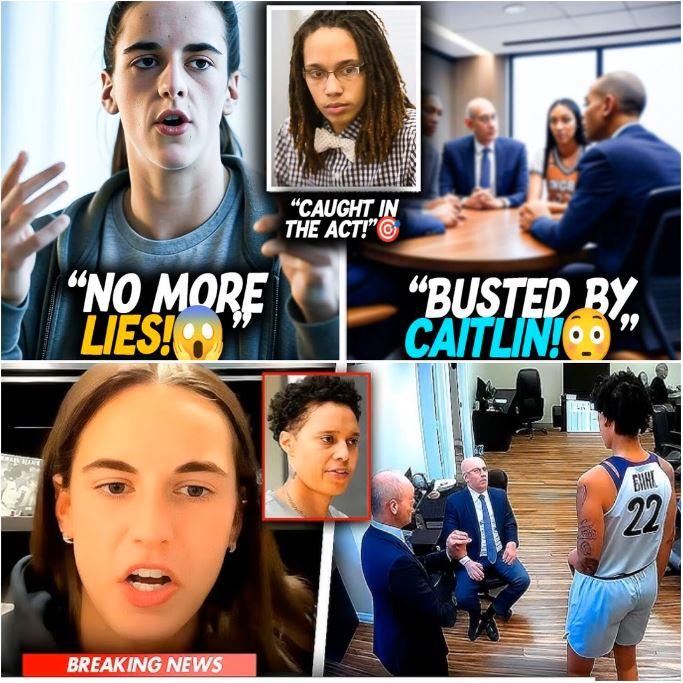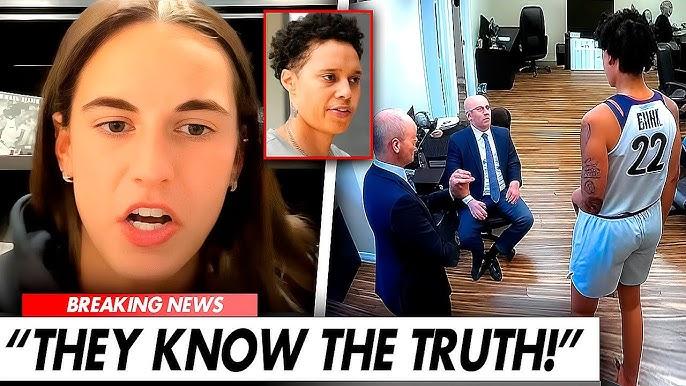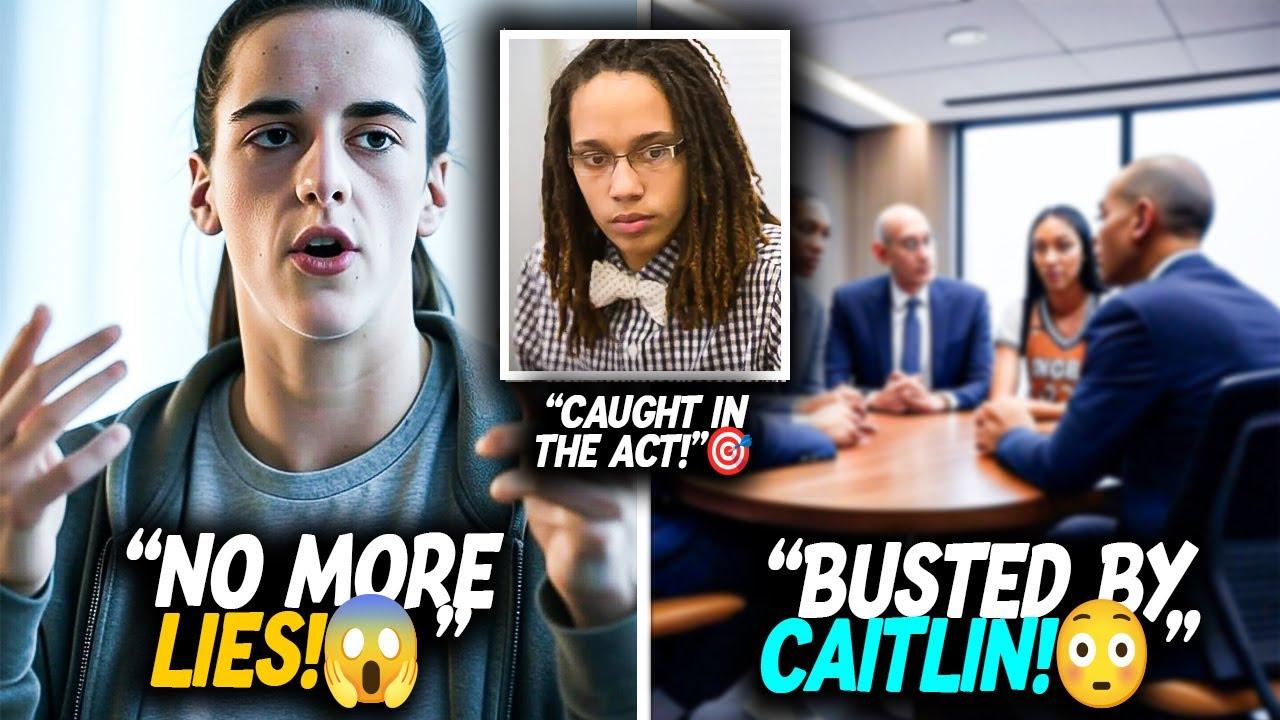Caitlin Clark, a rising star in women’s basketball, has recently made waves with her outspoken comments regarding the state of the WNBA. Known for her exceptional skill and leadership on the court, Clark’s remarks have sparked a heated debate about the challenges women face in professional basketball, particularly in relation to gender dynamics and the treatment of female players.

Clark’s comments came after she openly discussed the persistent issue of gender inequality within the sport. While many fans and analysts have praised the growth of women’s basketball, Clark believes there are significant hurdles that still need to be addressed, particularly in terms of respect and recognition for female athletes. Her comments have reignited a conversation about sexism in professional sports.

One of the key points Clark raised was the way “male” players often overshadow their female counterparts. She noted that despite the incredible talent in the women’s game, male players still tend to dominate media coverage and endorsement opportunities. This disparity, according to Clark, contributes to the underappreciation of female athletes and their accomplishments.

Clark also called attention to the bullying and harassment female players face both on and off the court. She spoke candidly about the toxic environment that sometimes exists within the basketball community, where women are subjected to unwarranted criticism and disparagement. These challenges can have a lasting impact on their mental health and overall well-being.
In addition to gender inequality and bullying, Clark highlighted what she referred to as a cover-up surrounding Brittney Griner’s case. Griner, a star in the WNBA, was wrongfully detained in Russia for months, and Clark expressed frustration with how the situation was handled by the league and its leaders. She believes the lack of transparency and urgency in the matter was damaging to both Griner and the women’s basketball community.
Clark’s comments have struck a chord with many, especially those who have long been advocating for better treatment and recognition of female athletes. The WNBA, though successful in its own right, has often struggled with gaining the same level of visibility and support as men’s leagues. Clark’s outspokenness has shone a light on the challenges still facing the league.
The Griner situation, in particular, has drawn attention to the ways in which women’s basketball is sometimes overlooked by the larger basketball community. While the men’s game receives widespread media coverage and sponsorship, the WNBA has often been relegated to a secondary status. Clark’s remarks about the cover-up suggest that the league could do more to advocate for its players, especially in times of crisis.
Clark also emphasized the need for stronger leadership within the WNBA. She argued that the league’s executives and decision-makers must be more proactive in addressing issues like inequality, bullying, and mistreatment. According to Clark, the league’s success depends not only on the talent of its players but also on how well it supports and protects them off the court.
One of the most impactful aspects of Clark’s commentary was her call for greater representation of women in leadership roles. She believes that having more women in decision-making positions within the WNBA could lead to more equitable treatment for players and help eliminate the biases that currently exist within the sport. Representation, Clark argued, is key to creating a more inclusive and supportive environment for female athletes.
Clark’s remarks have sparked a broader conversation about the role of women in professional sports. While women’s sports have gained significant traction in recent years, there is still a long way to go before they achieve parity with their male counterparts. Clark’s courage in speaking out about these issues has inspired other athletes and fans to join the conversation and demand change.
Despite the challenges, Clark remains optimistic about the future of women’s basketball. She acknowledged the progress that has been made but stressed that much work still needs to be done to ensure that future generations of female athletes will have the same opportunities and recognition as their male peers. Clark’s dedication to the cause has made her a powerful voice in the fight for equality in sports.
The debate sparked by Clark’s comments has not only focused on gender inequality but also on the ways in which women’s basketball can become a more prominent and respected part of the sports world. There is a growing movement to increase media coverage, improve financial compensation, and raise the overall profile of the WNBA. Clark’s statements have given this movement a much-needed boost.
As a highly influential player, Clark’s words carry significant weight, and many are hopeful that her platform can help bring about the change that women’s basketball so desperately needs. She has shown that it is possible to be both a fierce competitor on the court and a vocal advocate for social change off the court. Her willingness to speak out is a testament to her commitment to the sport and to her fellow athletes.
Clark’s criticisms have not been without backlash, as some have accused her of being too outspoken or divisive. However, many have rallied around her, recognizing the importance of having honest conversations about the state of women’s sports. By addressing difficult topics like bullying, inequality, and the treatment of players, Clark is encouraging a much-needed shift in the culture of professional basketball.
In the coming months, it will be interesting to see how the WNBA responds to Clark’s comments. Will the league take steps to address the concerns she raised? Will more players follow her lead in speaking out about the challenges they face? Only time will tell, but one thing is certain: Clark’s remarks have brought attention to issues that cannot be ignored.
Clark’s advocacy for women’s basketball has highlighted the importance of intersectionality within sports. It’s not just about gender equality, but also about addressing the ways in which race, class, and other factors intersect to create unique challenges for female athletes. By broadening the conversation, Clark is ensuring that all voices within the women’s basketball community are heard and valued.
The Griner cover-up is a reminder that women’s basketball is still fighting for the respect and visibility it deserves. While the NBA enjoys massive global recognition, the WNBA continues to face obstacles that hinder its growth and success. Clark’s efforts to shine a light on these issues are crucial in the fight for equality and representation in sports.
Clark’s willingness to challenge the status quo has made her a role model for young athletes everywhere. She has shown that it is possible to be both a fierce competitor and a powerful advocate for change. By using her platform to speak out, Clark is encouraging the next generation of female athletes to demand better treatment and recognition.
The future of women’s basketball is bright, but only if the issues Clark raised are addressed. It’s clear that change is needed, and Clark’s willingness to speak out has sparked a crucial conversation. As more athletes join the conversation, the hope is tha